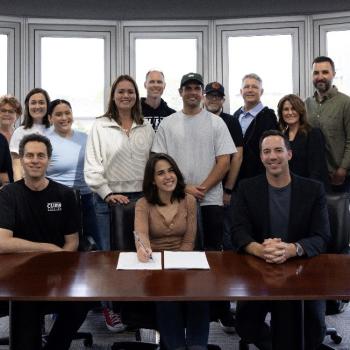Toyota, in other words, is hoping that people will buy its truck based on criteria that have nothing to do with driving a truck.
In this regard—in hawking the extraneous—Toyota is not alone. Cable companies long ago convinced people of the need for fifty movie channels. Cell phone companies—perhaps the leader in desire proliferation—successfully persuaded consumers of the need to call, text, email, browse the web and play games on the same device. And Apple is catechizing the need for two gadgets, the iPhone and iPad, which are essentially the same thing. Conversions are high (I fear I may soon account for one of them).
Some of the superfluity is harmless, but the cumulative effect is like a virus infecting software. Marketing not only responds to desires, it generates them. Toyota, Verizon, Apple, Nike—they create new longings, longings that often have no relationship to what men and women truly need or—if they honestly examined themselves—truly want. Weaned so thoroughly on strange and glamorous enticements, we are both dazzled and confused.
This confusion has consequences. Our desires are a contact point with God—not, to be sure, those immediate, superficial desires, but those needs and wants that spring from the recesses of our very being, and which cannot be commodified.
If we are to wring something good from this wrenching and directionless economy, it might be this: that it compels us to turn back to these deep desires, and to spurn the Tundra, shut off the TV, and absorb some always apropos lines of Wordsworth:
Listen! the mighty Being is awake,
And doth with his eternal motion make
A sound like thunder—everlastingly




